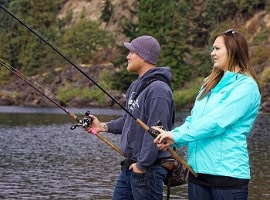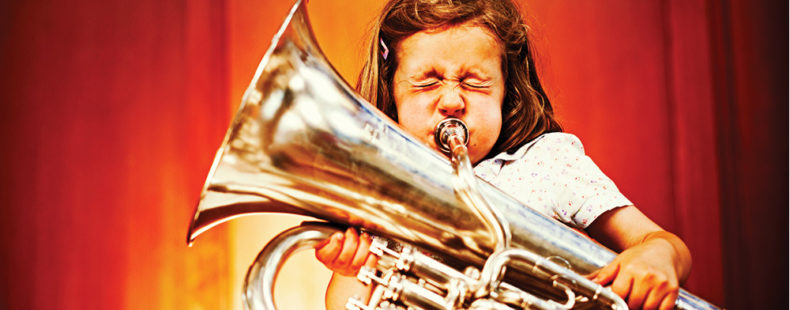Even though English speakers in the U.K. and North America use English in mostly the same ways, small differences persist. Many of these differences are in the spelling of words.
Practice and practise are two spellings of the same word. The only differences in meaning are in their usage in American and British communities.
Continue reading to discover if you should choose practice or practise, depending on your intended audience.
What is Difference Between Practice and Practise?
In this article, I will compare practice vs. practise. I will use each in a sentence and outline when it is appropriate to use each spelling.
Then, I will show you a helpful trick to use when you can’t decide whether to use practise or practice in your own writing.
When to Use Practice

As a noun, practice has many senses. It sometimes means repetition of a task or activity to increase skill level.
For example,
- If she puts in enough practice, Melissa can get better at writing.
- Their discipline and practice set Olympians apart from casual athletes.
Practice can also refer to a gathering or meeting where training takes place.
For example,
- Jerome, why weren’t you at soccer practice yesterday?
- The entire team must run drills at each practice.
- Panthers quarterback Cam Newton returned to practice Wednesday, although it remains unclear if the league’s MVP will play Sunday against the New Orleans Saints. –The New York Times
Practice might also refer to real world application of a concept or method, like in this sentence:
- In practice, the designs are never perfect, so you will still need to measure carefully.
Sometimes, a practice can be a business, especially in medicine and law.
For example,
- Weingart left the children’s hospital to start his own private practice.
As a verb, practice means to repeat a task or activity to increase skill level or simply to perform an activity regularly, even without the goal of increasing aptitude.
For example,
- Practice your scales so you will improve as a pianist.
- You must practice your religious rituals to maintain holiness.
When to Use Practise

Before the 20th century, practise was used as the verb form of this word in both American and British English.
Today, British writers and editors still prefer to spell the verb as practise, but Americans have made practice the standard verb spelling. Practice is also the standard spelling of the noun in both American and British English.
- He grew up in Killaloe in Co Clare, down the street from Keith Wood, a fellow Munster legend, and the pair used to practise their hurling skills together. Both had notable rugby-playing dads; Brendan Foley won 11 caps and featured in the Munster side that beat the All Blacks in 1978. –The Guardian
Trick to Remember the Difference

If you are using this word as a noun, spell it with a C to form practice.
As a verb, you will need to consider your intended audience. British readers are used to seeing practise as a verb, while Americans have shifted to practice for the verb as well as the noun.
You can remember to use practise as a British verb since it shares an S with the Spring Bank Holiday, a holiday observed in the U.K. which you could use to practise a hobby instead of going to work or school.
Summary
Is it practice or practise? Practice is used as both a noun and a verb; in both cases, it can have any of several different meanings.
- The word is always spelled practice in American English. In British English, the noun form is also spelled practice.
- The word is spelled practise when used as a verb in British English.
You can remember this difference because Spring Bank Day is a U.K. holiday that shares the S with practise, so you can remember to use practise as a verb with British audiences by imagining yourself practising a hobby on your day off.
Contents
- 1 What is Difference Between Practice and Practise?
- 2 When to Use Practice
- 3 When to Use Practise
- 4 Trick to Remember the Difference
- 5 Summary
“practice” and “practise” have the same pronunciation.
Pronunciation: /ˈpræk.tɪs/
These two words cause confusion because there is a big difference between American English and British English.
American English
In American English, there is only one word: “practice” (with a “c“)
“practice” in American English can act as a noun and a verb. (see examples below)
“practise” (with an “s“) is not a word in American English.
British English
In British English, both words exist:
“practice” (with a “c“) is a noun.
“practise” (with an “s“) is a verb. “practise” exists only in British English.
Practice as a noun
As mentioned above, “practice” can be used as a noun in both American and British English.
Meaning 1:
The act of doing something regularly to improve your skill.
Something that is done regularly. A habit, tradition or custom.
Examples:
I need some writing practice for the English exam.
I am going to football practice tonight.
It is common practice to give gifts at Christmas.
Meaning 2:
A job or business that needs a lot of training.
Examples:
She’s a doctor at a private medical practice.
Mark works for a large legal practice in London.
Expressions with practice as a noun
Expression: to be out of practice
Meaning:
to be performing badly because you are badly prepared.
to be in need of more practice.
Example:
I lost the tennis match because I was out of practice.
Expression: “Practice makes perfect”
Meaning:
We say this to encourage someone to work harder.
Example:
Teacher: “Try again, Mark. Don’t forget that practice makes perfect!”
Let’s now look at verbs.
Practice and practise as a verb
Reminder:
American English only: “practice” can also act as a verb.
British English only: The verb is spelt “practise” (with an “s“)
Meaning 1 as a verb:
to do something regularly to improve your skill.
Examples:
I must practice my French before I go to Paris. (American English)
I must practise my French before I go to Paris. (British English)
Jane practices the piano every week. (American English)
Jane practises the piano every week. (British English)
Meaning 2 as a verb:
to do something regularly. A habit, tradition or custom.
Example:
David practices his religion every day. (American English)
David practises his religion every day. (British English)
Meaning 3 as a verb:
to work in a job or business that needs a lot of training.
Example:
He practiced as a dentist for 20 years. (American English)
He practised as a dentist for 20 years. (British English)
Common structures with practice and practise as a verb
practice + ing verb (American English)
practise + ing verb (British English)
Meaning:
to do something regularly to improve your skill.
Examples:
He is practicing catching a ball. (American English)
He is practising catching a ball. (British English)
They are practicing fishing. (American English)
They are practising fishing. (British English)
In this context, the ing form of the verb is a gerund. A gerund is a verb acting as a noun.
Summary
Noun
practice is a noun in both American and British English.
Example:
I need more practice before I take the exam.
Verb
American English: practice is also a verb
British English: practise is a verb
Examples:
Jane practices the piano every week. (American English)
Jane practises the piano every week. (British English)
More English lessons
English lessons on our Youtube channel
How to give an invitation in English
Direct speech writing rules in English
English nouns that only have a plural form
Private online English lessons with a native
English video lesson
Published August 15, 2022
If you’ve ever wondered why it’s spelled practice in some contexts and practise in others, it mainly comes down to British versus American spelling. But which is which?
⚡ Quick summary
In British English and other varieties, the spelling practise is used as a verb and the spelling practice is used as a noun. American English uses practice as both the noun and verb form (avoiding practise altogether).
When to use practise or practice
In American English, the spelling practice is the only one commonly used—and it’s used for both the noun (commonly meaning “habit or custom” or “repeated exercise to acquire a skill”) and the verb (commonly meaning “to do something repeatedly in order to master it” or “to pursue as an occupation or art”).
In British English and other varieties (including those used in Canada, Australia, and other places), a distinction is made between the verb the noun form by varying the spelling: the noun is spelled practice (just like in American English) and the verb is spelled practise.
For example, in these varieties, the following sentence may be used:
- It is good practice to practise daily.
In American English, the spelling practise is usually never used.
The distinction may sound strange, but there’s another case in which this happens, and it’s not unique to British English.
What other words can end in –ice and –ise?
While Britain and American can’t quite agree on how to use practice vs. practise, they can at least agree on advice and advise.
In this case, advise is used as the verb (as in She advised him against it), while advice is the noun (as in He ignored her advice and did it anyway).
WATCH: Advice vs. Advise
However, the above convention is not true of all –ice words. Service is a word in which both the verb use (I asked them to service my car) and the noun use (They provide great service) use the same -ice ending.
Similarly, there are also several words that end in -ise for both the verb and noun forms, regardless of which variety of English is being used, such as promise, surprise, merchandise, and franchise.
Why do these endings vary?
The British often use -ise for verbs (organise, civilise, realise), but that doesn’t mean the -ize ending (organize, civilize, realize) is unique to American English. Preference is divided in the UK (with the Oxford English Dictionary favoring -ize, for example). Examples of organize date all the way back to 1425.
The use of -ise or -ize often depends in part on a word’s origin. The ending -ize corresponds to words of Greek origin, while -ise is often rooted in French. The variation seen in practice and practise is derived from the Old French words pratiser and practicer.
Curious about more differences between American and International English? Flip through this: A Glimpse Into The Differences Between US, UK, And Aussie English.
-
#1
I cannot find the verb to practice in either of my dictionaries. They do offer the translation of its noun form практика, but is there a Russian verb form? Specifically, by practice this is usually in the context of sports, that to be good at at a skill it is necessary to practice. This, of course, applies to anything outside of sports as well. Here are some examples.
1. Sergei wants to practice golf every morning.
2. Mikhail Baryshnikov practiced ballet endlessly.
3. Maria Sharapova practices tennis every day.
Как сказать по-русски?
-
#2
Заниматься, упражняться (в чём-то), тренироваться…. We’ve got the verb «практиковать(ся)» as well, but it has somewhat limited usage.
Сергей хочет упражняться в гольфе каждое утро (ежеутренне).
Михаил Барышников бесконечно практиковался в балете.
Мария Шарапова занимается теннисом ежедневно. (…тренируется каждый день).
RhoKappa практикуется в русском языке.
Last edited: Apr 4, 2016
-
#3
1. Sergei wants to practice golf every morning.
2. Mikhail Baryshnikov practiced ballet endlessly.
3. Maria Sharapova practices tennis every day.Как сказать по-русски?
1. Сергею хочется играть|упражняться в гольф каждое утро.
2. Михаил Барышников занимался балетом бесконечно.
3. Мария Шарапова тренируется в теннис каждый день.
Практикуют обычно врачи, но это значит, что они работают по профессии, а не тренируются. Можно «практиковать занятие|занятия чем-л.», например, йогой, но относиться это может к широкому спектру чего угодно, включая, например, каннибализм.
Last edited: Apr 4, 2016
-
#4
1.
3. Мария Шарапова тренируется в теннис каждый день.
This one doesn’t sound well to me.
-
#5
Russian prefers to use appropriate verbs depending on the type of activity. For те́ннис, го́льф and Call of Duty it’s игра́ть; for бег, бале́т, фортепиа́но, ерунда́ it’s занима́ться, although you can also играть на фортепиано if it isn’t about practicing your skill but simply playing it. Заниматься гольфом, теннисом and Call of Duty sound awkward to me. Упражняться implies mental or physical training, not acquiring a skill, although there’s obviously some overlap.
Last edited: Apr 4, 2016
-
#6
Упражняться implies mental or physical training, not acquiring a skill, although there’s obviously some overlap.
OP is about improving of a already acquired skill.
-
#7
OP is about improving of a already acquired skill.
That’s what I meant when I said «acquiring skill» – you can’t say when a skill is already acquired, it can always be improved. You can упражняться в математике, отжимании, остроумии, but упражняться в гольфе sounds poor to my ear. Упражняться в метании мяча (для гольфа) sounds all right though, so the border is really vague. In either case it implies some repetitive exercise.
Last edited: Apr 4, 2016
-
#8
I cannot find the verb to practice in either of my dictionaries.
WR dictionary: to practice — практиковаться, заниматься, тренироваться, учиться.
-
#9
The word practice in itself has many meanings, as it can be a noun or a verb. For example as a verb, a doctor can practice medicine. However, I seek specifically a verb that refers to practice as in to improve a skill, and that is why it is hard to find in my diciontaries. Is there a difference between практиковаться and упражняться?
-
#10
The word practice in itself has many meanings, as it can be a noun or a verb. For example as a verb, a doctor can practice medicine. However, I seek specifically a verb that refers to practice as in to improve a skill, and that is why it is hard to find in my diciontaries. Is there a difference between практиковаться and упражняться?
Практикова́ться is ostensibly stilted, but I suppose it matches the English word’s meaning best out of everything available and means «to get practice». It may sound awkward though. As I mentioned, упражня́ться normally refers to doing repetitive tasks usually aimed at improving physical or mental «shape», so if you’re practicing shooting a golfball, that’s the right word, but if you’re generally playing the game to get better at it – I wouldn’t recommend it. In the latter case, игра́ть or занима́ться works depending on the activity.
-
#11
I would say that упражняться is mostly equivalent to «exercise».
-
#12
Практикова́ться is ostensibly stilted, but I suppose it matches the English word’s meaning best out of everything available and means «to get practice». It may sound awkward though. As I mentioned, упражня́ться normally refers to doing repetitive tasks usually aimed at improving physical or mental «shape», so if you’re practicing shooting a golfball, that’s the right word, but if you’re generally playing the game to get better at it – I wouldn’t recommend it. In the latter case, игра́ть or занима́ться works depending on the activity.
УПРАЖНЯТЬСЯ — УПРАЖНЯТЬСЯ, яюсь, яешься; несовер. Постоянными действиями прививать себе какой н. навык, приучать себя делать что н. У. в игре на рояле. У. с гантелями. | сущ. упражнение, я, ср. Толковый словарь Ожегова. С.И. Ожегов, Н.Ю. Шведова. 1949 1992
Упражняться
упражня́ться
несов. неперех.
1.
Систематически выполнять определённые упражнения, развивая, совершенствуя свои навыки, умения.
2. разг.
Пробовать свои силы, способности в какой-либо сфере деятельности.
Толковый словарь Ефремовой. Т. Ф. Ефремова. 2000.
In my opinion, «упражняться в гольфе» is fine, as far as we talk about developing golf skills.
-
#13
In my opinion, «упражняться в гольфе» is fine, as far as we talk about developing golf skills.
Я тоже так думаю, только в случае участия в играх естественным мне кажется винительный падеж, переносимый с «играть».
-
#14
In my opinion, «упражняться в гольфе» is fine, as far as we talk about developing golf skills.
I agree that it’s fine, but again, only as long as there’s an упражнение, a постоянное действие involved. In case of golf that would be shooting the golf ball (I don’t suppose one would practice driving around in a golf cart ), in case of piano – playing a select passage, in case of dumbbells – lifting and lowering them.
-
#15
I agree that it’s fine, but again, only as long as there’s an упражнение, a постоянное действие involved. In case of golf that would be shooting the golf ball (I don’t suppose one would practice driving around in a golf cart
), in case of piano – playing a select passage, in case of dumbbells – lifting and lowering them.
I don’t think so.
Она постоянно упражняется в игре на пианино перед ужином. — She always practices the piano before dinner. This would just mean that she trains her musical abilities on regular basis.
-
#16
I don’t think so.
Она постоянно упражняется в игре на пианино перед ужином. — She always practices the piano before dinner. This would just mean that she trains her musical abilities on regular basis.
The whole sentence smacks of less-than-perfect translation because постоянно does not combine well with regular time references in Russian, being a regular time reference itself, much like all the time doesn’t combine with before dinner (unless it means «non-stop» in both languages). The correct word here is всегда.
As for the verb, I concede that it means «to improve one’s piano-playing abilities through practice», but still I feel it implies more repetitive exercise than the English to practice does. Besides, that’s what «practicing piano» is all about, unlike «practicing one’s German», for instance. There, this verb would be really questionable when describing practice through posting on the Internet or speaking with a friend on the phone or Skype.
Frankly, I’d struggle to come up with the right verb in this instance, probably just улучша́ть.
Last edited: Apr 5, 2016
Although ‘practise’ and ‘practice’ sound exactly the same and have very similar spellings, the one letter difference indicates whether the word is being used as a verb or a noun.
Understandably, many people struggle to remember which term to use in any given situation, so spelling mistakes are common. In academic writing, this doesn’t give a good impression to the reader. With our help, though, you need never mix them up again!
Practise (Verb)
When ‘practise’ is spelled with an ‘s’, it’s a verb that usually means ‘regularly repeat an activity in order to get better’. It’s used when talking about skills, like speaking a foreign language, playing a sport or drawing. ‘Practise’ would therefore appear in a sentence such as:
I practise playing the piano for an hour per day.
It is also used to mean ‘carrying out an activity regularly or habitually’, especially when discussing someone’s religion or profession. For example, we could say:
He is a practising Catholic.
Or we could say:
Find this useful?
Subscribe to our newsletter and get writing tips from our editors straight to your inbox.
She practises law.
In each case, ‘practise’ denotes a custom being carried out.
Practice (Noun)
When spelled with a ‘c’, ‘practice’ is a noun. This refers to a habitual or established way of doing something. If a doctor practises (verb) medicine, for example, she or he is engaged in medical practice (noun).
The word ‘practice’ can also be used to mean the physical place or building where a doctor or lawyer practises. For instance, a medical practice is somewhere you would go for a doctor’s appointment.
It can also be used a more general sense to mean ‘apply an idea or theory’, as in the phrases ‘she put her training into practice’ or ‘practice makes perfect’.
Practise or Practice?
Remember the basic rule: ‘practise’ with an ‘s’ is a verb and ‘practice’ with a ‘c’ is a noun. As such, if the sentence seems like it refers to an action, ‘practise’ is correct. If it refers to a thing, ‘practice’ will be the term to use.







